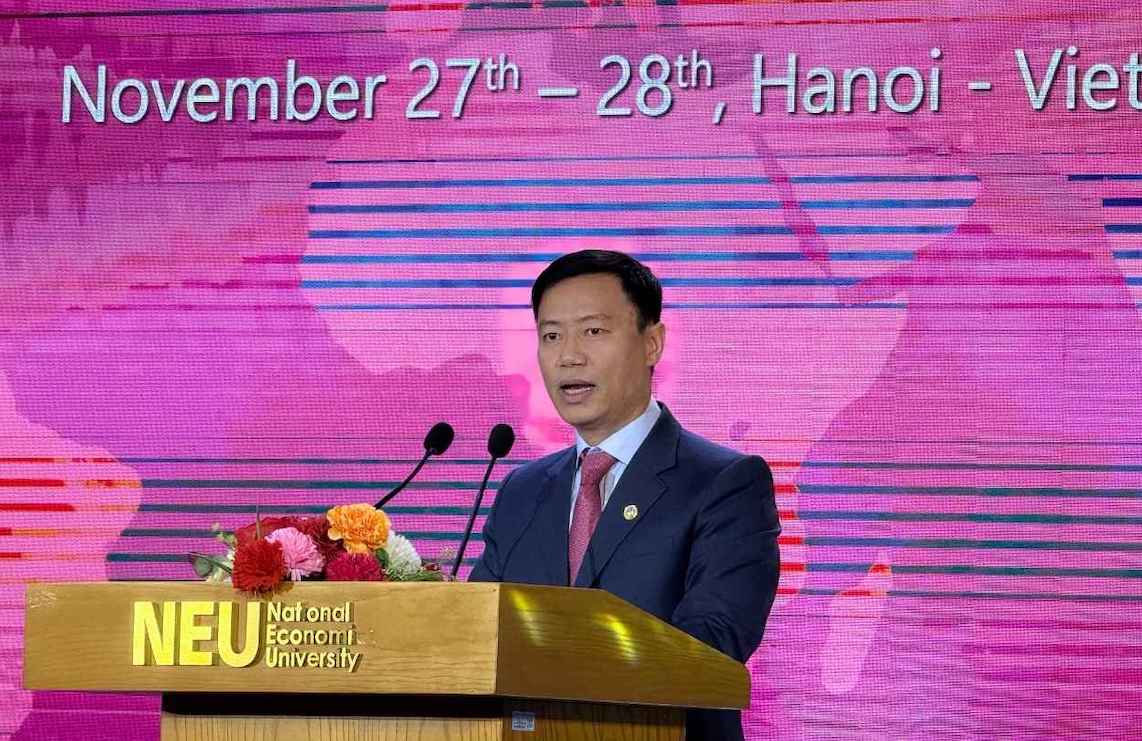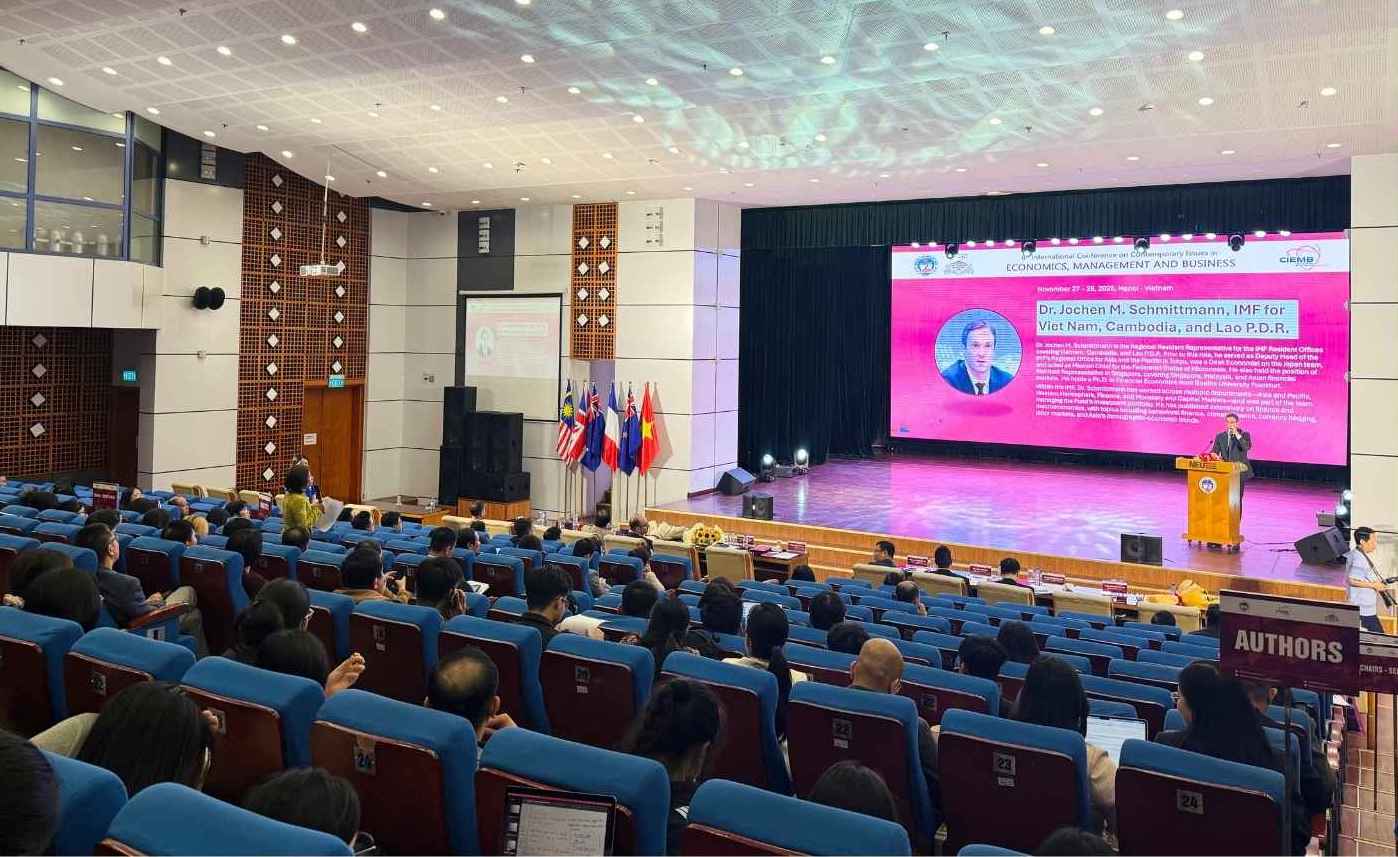At the International Workshop with the theme " Contemporary Issues in Economics, Management and Business" held on November 27, Associate Professor, Dr. Bui Duc Tho - Party Secretary, Chairman of the Council of the National Economics University - said: 2025 will witness unprecedented rapid changes in the world, with many unpredictable developments, such as changes in international trade models, global supply chains affected by geopolitical tensions, strong spread of artificial intelligence in most industries, or prolonged high inflation in many major economies. These changes happen quickly but have a profound impact on people's lives and welfare.
"For Vietnam, the current global environment brings both great opportunities and important challenges. At the same time, Vietnam is also going through a period of strong transformation, entering an "era of rising up", marked by major reforms in socio-economic institutions, the digital transformation process taking place extensively in all fields, along with the rapid transformation of the labor market and the industry structure.
This is an exciting time for economic research. Issues become more urgent, data is richer and policy implies have a broader impact. High-quality academic works not only have knowledge value but also provide important arguments for policy making and shaping the future of development" - Associate Professor, Dr. Bui Duc Tho shared.

Regarding Vietnam's economic picture, Chief Representative of the International Monetary Fund (IMF) in Vietnam, Cambodia and Laos, Dr. Jochen M. Schmittmann assessed that Vietnam has had impressive growth for many decades. GDP per capita is constantly approaching emerging markets, gradually narrowing the gap with developed economies. He emphasized that this success is due to deep integration into the global economy, expanded trade and strong FDI capital flows, helping the export structure shift from raw materials, agricultural products and oil and gas to electronics - machinery.
According to him, recent growth has also been supported by an open macro policy environment: Interest rates remain low compared to many countries in the region...
However, according to him, Vietnam still has some barriers to moving towards the double-digit growth target.
"Vietnam is facing some challenges such as: The financial system has not allocated capital effectively, ineffective enterprises still exist, private enterprises have to bear high costs, limit innovation and increase productivity. Workers have good basic qualifications but lack technical skills, the training system has not met economic needs" - he commented.
From those analysis, Dr. Schmittmann believes that, to approach the double-digit growth target, Vietnam cannot just continue to expand investment and labor.
"In the short term, monetary policy needs to be cautious because credit is too high; prioritize strengthening the safety of the banking system, handling bad debts and increasing capital. On the contrary, the budget still has a lot of room thanks to low public debt, so we can focus on investing in infrastructure, especially digital infrastructure, logistics, energy, but we must focus on choosing good projects, avoiding spread and loss" - he said.

In terms of structure, he emphasized two key reform directions. First, reform the financial system and business sector to allocate capital according to market signals, narrow the privileges of state-owned enterprises, and create a level playing field for domestic private enterprises.
Second, strongly improve the quality of human resources: cai thien vocational education, university, link training with business needs, encourage digital skills, technology and modern governance.
"In the context of a favorable global economy, this will be an important foundation to help Vietnam achieve the double-digit growth target in the coming time, not just a paper ambition" - Dr. Jochen M. Schmittmann emphasized.











